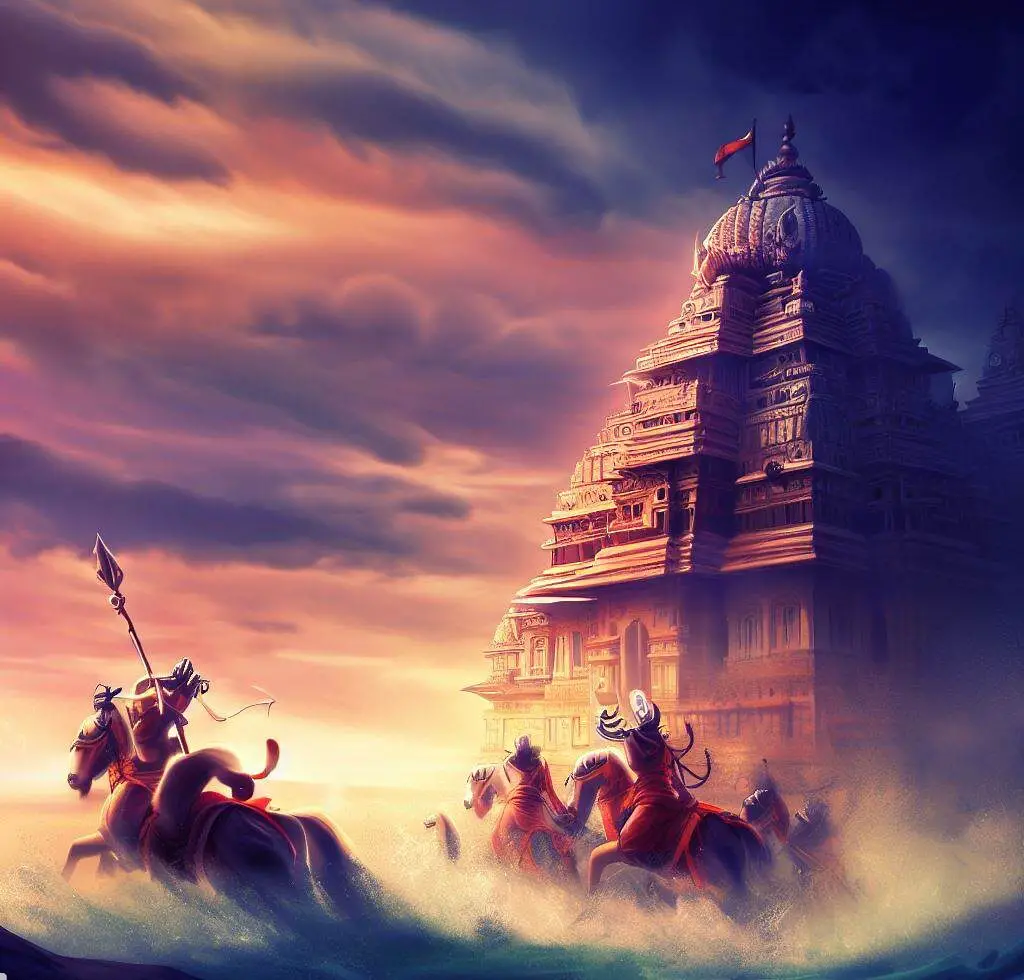Unveiling the Majestic Tapestry of Mahabharat: A Timeless Tale of Heroes, Villains, and the Cosmic Battle for Righteousness”
The Mahabharata is an ancient Indian epic that spans a vast number of verses and encompasses a multitude of characters, events, and philosophical teachings. Providing a detailed account of the entire epic in a short text is challenging, but I will give you a concise summary of the main narrative.
The story begins with King Shantanu of Hastinapura, who falls in love with the celestial nymph Ganga. They have a son named Devavrata, later known as Bhishma. King Shantanu marries another woman, Satyavati, and they have two sons, Chitrangada and Vichitravirya.
Bhishma takes a vow of celibacy and swears to protect the throne of Hastinapura. When it becomes time for Vichitravirya to marry, Bhishma secures brides for him: Ambika and Ambalika, the princesses of Kashi. However, Vichitravirya dies childless, and Satyavati urges Bhishma to allow her son’s widows to beget children through a practice called Niyoga.
Ambika and Ambalika give birth to Dhritarashtra and Pandu, respectively. Dhritarashtra is born blind, and Pandu is cursed with a premature death. Pandu becomes the king and has five sons known as the Pandavas: Yudhishthira, Bhima, Arjuna, Nakula, and Sahadeva. Dhritarashtra has one hundred sons called the Kauravas, led by Duryodhana.
The Pandavas and Kauravas grow up together in Hastinapura, but jealousy and enmity arise between them. Duryodhana, envious of the Pandavas’ popularity, plots their downfall. He orchestrates the infamous game of dice, where Yudhishthira loses his kingdom, his wealth, and even his wife Draupadi. The Pandavas are exiled for thirteen years, with one year spent incognito.
During their exile, the Pandavas embark on various adventures, facing trials, and gaining celestial weapons and knowledge from sages and deities. Draupadi becomes the common wife of all the five Pandavas. In their final year of exile, they take refuge in the kingdom of King Virata, disguising themselves in different occupations. Arjuna, under the name Brihannala, becomes a dance teacher to the princess Uttara.
After completing their exile, the Pandavas reveal their true identities and demand their kingdom. Duryodhana refuses to concede, leading to the great Kurukshetra War. Lord Krishna becomes Arjuna’s charioteer and guides him with his divine wisdom, including the teachings of the Bhagavad Gita.
The Kurukshetra War lasts for eighteen days, witnessing immense bloodshed and acts of valor. Many warriors from both sides display extraordinary skills and engage in epic battles. Arjuna slays several formidable opponents, including Karna, Bhishma, and Dronacharya. The war also sees the intervention of various celestial beings, such as Indra, Yama, and Shiva.
Ultimately, the Pandavas emerge victorious, but the war takes a heavy toll. Many of their loved ones, as well as the Kauravas, meet their end. The Pandavas, overwhelmed by grief and guilt, renounce their kingdom and embark on a pilgrimage towards the Himalayas, accompanied by Draupadi.
Along the way, one by one, the Pandavas and Draupadi fall, succumbing to their human weaknesses. Only Yudhishthira, accompanied by a dog, completes the journey. The dog reveals itself to be the god Dharma, testing Yudhishthira’s righteousness. Pleased with Yudhishthira’s unwavering devotion, Dharma takes him to the heavenly abode, where he is reunited with his brothers and Draupadi.
The Mahabharata concludes with Yudhishthira’s arrival in paradise, symbolizing the triumph of dharma (righteousness) over adharma (unrighteousness). The epic serves as a profound guide to human values, moral dilemmas, and the complexities of life, leaving readers with deep insights and timeless wisdom.
This summary provides a brief overview of the Mahabharata, but it barely scratches the surface of the numerous subplots, teachings, and philosophical discourses contained within the epic. The Mahabharata remains a treasure trove of stories and wisdom that continues to resonate with people across cultures and generations.
